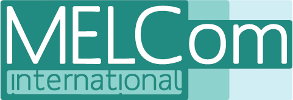Virtual and digitised collections have multiplied and grown since MELCom International decided to dedicate a page to them as the information was forwarded to the person in charge of the website. In 2020, it is obvious that this list and the descriptive notes are way behind the real picture. Those who are willing to enrich the list and update the information are welcome to contact the MI secretary who will forward. In fact you are invited to do so. Find a private English tutor. Thanks!
- AMIR, Access to Middle East and Islamic Resources (ISSN 2160-3049) is an international collaborative project aimed at collecting and sharing information about Open Access, scholarly material for teaching and study of the Middle East and Islam. The project collects and publishes on the web and via email, information about reliable Open Access journals, e-books, archives and manuscripts collections, images, data and other related resources. AMIR encourages active participation by anyone who is interested in the project. AMIR is itself open access, licensed under a Creative Commons Attribution-Noncommercial-Share Alike 3.0 United States License.
-
The American University in Cairo Board of Trustees Meetings Minutes digital collection primarily includes meeting agendas and minutes, as well as additional documentation such as budgets, correspondence, reports, and memoranda. The collection includes minutes ranging from the first meeting of the Board of Trustees of Cairo Christian University on November 30, 1914 to the American University at Cairo’s meeting on December 19, 1959. This collection will continue to grow as minutes are digitized.
-
DJAZAIRIATES Des centaines de titres de monographies, périodiques et thèses ainsi que des ouvrages anciens (1490-1811 ) conservés à la Bibliothèque Universitaire d’Alger, mis en libre accès.
-
Duke University Library is digitising their Ottoman Turkish collection. At present (March 2013) 250 titles have been made available online.
- A common project of SALT, Istanbul – Atatürk Library, Istanbul & Bibliothèque nationale de France (BnF) for digitising Ottoman press and other periodicals in French. For those digitised by the BnF, browse Gallica (search by word Turcica1 which gives 26 titles as of June 2014), those digitised by SALT (80 titles), visit the catalogue.
- Atatürk Kitaplığı, Istanbul has digitised over 40 000 books in Ottoman Turkish. Information and search in catalogue in Turkish after submitting membership request (free). The same catalogue offers old maps and post cards, also digitised.
__________________________________________________________________
- Resources of Aga Khan Documentation Center, MIT Libraries :
(a) Archnet.org : An open access library focused on architecture, urbanism, environmental and landscape design, visual culture, and conservation issues related to the Muslim world. Currently published records: 8,295 Sites; 9,774 Publications and files, 120,081 Images and videos, & 1,020 Name records (as of end October 2019)
(b) Aga Khan Visual Archive which consists of over 120,000 digitized and born digital images of architecture, urbanism, and the built environment of Muslim societies, donated by students and scholars, affiliated with the Aga Khan Program for Islamic Architecture at MIT and Harvard, as well as academics, scholars, cultural institutions, and architects from around the world (end October 2019)
-
The Middle East Virtual Library (MENALIB) is an information portal for Middle East, North African, and Islamic Studies. It provides access to electronic fulltext materials or electronic bibliographical records of printed materials and manuscripts.The technical basis for this Virtual Library is maintained by the State- and University Library Saxony-Anhalt in Halle (Germany). At the same time, MENALIB integrates the efforts of many institutions and individuals in order to provide information as comprehensive as possible.
- In 2008, Princeton University Library acquired an of some 1,748 posters and 750 lobby cards for films created in Egypt, Lebanon, Syria and Iraq and screened between 1940 and 2005. The entirety of the collection has been digitized.
- recently opened its l, It provides free access to a variety of materials. English and Arabic interfaces are available. The portal allows cross searching between various collections; one of these collection is the “World Collection” which is the digital embodiment of the publication, World Survey of Islamic Manuscripts (4 vols.). This section allows for browsing collections of Islamic manuscripts from all over the the world by language, subject, size and date of establishment of the collections.
-
The Portal gateway to Islamic manuscripts builds upon the significant work already accomplished by the Foundation through its published catalogues. In this collection, users can currently browse and search more than 50,000 manuscript records from over 100 collections private and non private previously published by the Manuscript Centre. The new online platform facilitates the discovery of major ‘hidden’ Islamic manuscript collections. It covers materials from basic hand-lists to comprehensive descriptive catalogues, captured in such detail as incipit and explicit, quality of paper, ink, binding etc.
